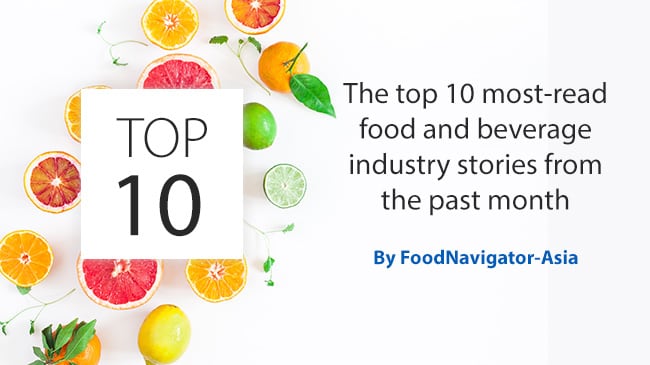Transitioning from 2024 to 2025. (Sakorn Sukkasemsakorn/Getty Images)Five major trends set to shape APAC food and beverage industry growth in 2025We take a closer look at five of the top trends that look set to have a major impact on the growth of the Asia Pacific food and beverage industry in 2025.
Highlights include affordability and accessibility taking centre stage, alternative protein rejigs, better-for-you’s continued growth across various sectors and more.
Positive Indicators and Growth 2025. (Thapana Onphalai/Getty Images)Three emerging food and beverage categories to watch for major growth in 2025With many companies both large and small within the Asia Pacific food and beverage sector on the lookout for new and innovative product strategies to stand out and attract consumers with added value amidst trying economic conditions, we believe these three emerging categories are set to see rapid growth in the region in 2025.
The three major emerging categories in this story come from the functional beverages, premium alcohol and cheese sectors.
Concept changes in laws in year 2025 (Pavel Muravev/Getty Images)Five must-know regulations set to impact the APAC food and beverage sector in 2025From the delay of the much-disputed EU Deforestation Regulation to Singapore’s Nutri-Grade being expanded to sodium and fat content, FoodNavigator-Asia brings you five of the most need-to-know regulatory updates that will have a major impact on the food and beverage industry in 2025.
Highlights include the EU Deforestation Regulation delay, Nutri-Grade in Singapore, the Halal Law implementation in Indonesia and more.
Plant-based cheeses have struggled to replicate the taste and texture of dairy cheese. Could casein be the solution? Credit: GettyImages (nicolamargaret/Getty Images)China tariff adjustments 2025: Dairy big winner but sugary products take major hitChina’s recently-announced adjustment to its import tariffs will see many dairy products benefit – but various sugary solutions are expected to take a major hit.
China is one of the world’s largest consumer markets, and any adjustments to its import and export tariffs can have immense impacts on global trade.
The local State Council Customs Tariff Commission recently announced that adjustments had been made to its import-export tariffs for 2025, affecting some 8960 tax items.
Whilst most staple food items such as wheat and sugar will not see major changes, several food and beverage related products are expected to see significant impacts as a result of these changes.
The thermochromic strip on Taylors’ estate label bottles changes colour based on temperature, helping consumers easily determine the ideal serving range for their wines. (Taylors)‘Wine is fashion business’: Staying ahead of the curve is crucial in saturated Asia market – TaylorsAustralia’s Taylors is applying a forward-thinking approach in its packaging and latest launches to capture Asian market share.
Since winemaking is a long process, brands need to anticipate what consumers want way ahead of time and adapt accordingly.
“As my father said many years ago, we’re not really in the wine business; we’re in the fashion business. So, we have to be very adaptive to all the trends that are happening,” said Mitchell Taylor, third generation winemaker and managing director at Taylors.
One of Taylors’ innovations is the thermochromic strip on its estate label bottles, which changes colour based on temperature. This sensor helps consumers easily determine the ideal serving temperatures for their wines. For example, Shiraz should be served between 16 to 18°C.
“This feature is especially useful for addressing misconceptions,” Taylor said. “Many people think red wine should always be served at ‘room temperature,’ but that can vary widely depending on the season or region. Our labels encourage consumers to chill red wine to the recommended temperature, even if it means putting it in the fridge.”
Asian woman teaching team work in working on food and beverage safety. (Papatsorn Khunsaard/Getty Images)China’s latest food safety report reveals pesticide contamination, food additives as major concernsChina’s most recent government-led food safety report has revealed pesticide contamination, microbial contamination and excessive food additive content as the major concerns.
China compiles local food safety data based on random spot checks conducted on a large number of food companies in the country in quarterly reports.
The most recent version was compiled from spot checks and testing on over two million batches of local food products, and found that over 60,000 batches of these did not meet local food safety standards.
“Our analysis across the various samples and food categories has revealed the following concerns: Pesticide contamination in excess of allowed standards which made up 39.94%, microbial contamination which made up 16.32% and excessive usage of food additives beyond permitted quantities which made up 14.99%,” China’s State Administration for Market Regulation (SAMR) said via a formal statement.
LT Foods (LT Foods)Rice opportunity: India’s LT Foods targets Saudi convenience marketIndia-headquartered LT Foods says there is a huge opportunity for growth in Saudi Arabia’s convenience and ready-to-eat market.
The company recently opened an office in Riyadh to capture opportunities in Saudi Arabia’s rice and rice-based foods market, with plans to invest USD49.3m into building local manufacturing capabilities.
This move is part of the company’s global expansion endeavours and comes after the inauguration of a new manufacturing plant in the UK in July 2024.
Through setting up an office in Saudi Arabia, LT Foods aims to tap into opportunities within the local rice and rice-based foods market, which it says is worth USD2bn.
“The Saudi market presents immense opportunities for us, driven by a growing demand for rice and rice-based food products, and an increasing focus on quality and authenticity,” Vijay Arora, Chairman and Managing Director of LT Foods, told FoodNavigator-Asia.
Aleph Cuts cultivated beef steak (JULIA STOTZ/Aleph Farms)Aleph Farms to tap Thai Union expertise for cultivated steak localisation post-regulatory approvalAleph Farms has revealed plans to work with its local partners in Thailand, including Thai Union, to develop localised options of its cultivated beef steak, on the heels of its recent application for regulatory approval in the country.
The firm submitted its application to government agency BIOTEC, which is a body under the Thai Food and Drug Administration (FDA) in charge of assessing the safety of cultivated meat products.
“We recognise that cultivated meat is a relatively new area for these authorities, and are maintaining continuous dialogue with regulatory agencies to ensure transparency and foster a collaborative approach,” Aleph Farms CEO and Co-Founder Didier Toubia told FoodNavigator-Asia.
“This submission marks the first and most significant step towards obtaining approval from the Thai FDA and this regulatory filing aims to enable the sale of Aleph Cuts in Thailand.
“The estimated decision time is approximately 18 months, although this timeline may vary.”
Tax on sugar and sweetened products (Getty Images/Piotr Malczyk)Sugar-sweetened beverage tax has limited impact on reducing non-communicable diseases: ReviewTaxes on sugar-sweetened beverages (SSB) have limited real-world impact in combating non-communicable diseases (NCDs), according to researchers at Indonesia’s IPB University.
The researchers conducted a systematic review of global data from 29 studies, with the aim of providing clarity for policymakers on the effectiveness of this widely promoted measure to deter sugar consumption and curb related NCDs like type 2 diabetes.
22 of the studies in the review employed various modelling techniques, including cost-effectiveness analyses and proportional multi-state life tables, to simulate the potential impact of SSB taxes in countries such as the US, South Africa, and the UK.
Subsequently, the review found that simulation models provided strong evidence that SSB taxation could effectively reduce the prevalence of NCDs such as type 2 diabetes, cardiovascular diseases, and obesity. The reviewed models indicated that even modest tax rates of 10% 25% could decrease NCD incidence, mortality, and healthcare costs.
Additionally, the review highlighted that the increased government revenue generated by SSB taxes could be redirected toward public health programs, enhancing overall healthcare outcomes.
Little girl drinking (kool99/Getty Images)Suntory on APAC as key market for 2025 dual health essence and RTD drinks strategySuntory is eyeing the Asia Pacific region as a key market for its double-barrelled strategy focusing on health essences as well as ready-to-drink (RTD) products in 2025.
South East Asia is expected to be a major target for the firm to grow its already-popular Brand’s health essences such as the well-known bottled Brand’s Essence of Chicken and Essence of Ginseng.
“In the coming year, South East Asia will be a key market for our health essence products, particularly the Brand’s Health Essence Range,” Suntory Beverages and Food Asia Pacific (SBFAP) Chief Marketing Officer Hiroyuki Fujiwara told FoodNavigator-Asia.
“Health consciousness is a major driver [in this region] as consumers are becoming more aware of the impact of their dietary choices on their overall well-being.
“This trend is expected to grow even stronger in 2025, with a particular focus on mental health and stress-relief products, and consumers will increasingly seek products that offer functional benefits, such as immunity-boosting ingredients and natural formulations.
“We already see our health essences being well-received in countries like Thailand, Taiwan and Malaysia and we are committed to expanding our presence in this region to meet these growing needs.”





GIPHY App Key not set. Please check settings